By Tom Travis
The Land Bank of Genesee County owns, maintains and manages more than 15,000 properties in the City of Flint–a whopping 27 percent of the city’s land.
Yet many in the community may not know what it is and how it has become a leading influence on the city’s landscape of abandonment and rehabilitation.
Of those 15,000-plus properties, more than 9,000 are residential and nearly 300 are commercial. According to its 2018/2019 budget, the Land Bank, a nonprofit blend of public and private interests enabled by state law since 2004, sold 544 properties, generating nearly $3.1 million in revenue.
Many of those properties come to the Land Bank through tax foreclosures and abandonments — properties other people don’t want, according to the Land Bank’s new director, Michael Freeman.
And instead of allowing a proliferation of ruin, the Land Bank, with a budget of $4.88 million and a full-time staff of 23 working out of its downtown headquarters, attempts to transform the property by rehabbing the building, or demolishing it, or clearing it to be a neighbor’s spare lot, or even, in some cases, facilitating a neighborhood garden.
For the upkeep of its inventory, every three weeks Land Bank staff maintain and mow 4,100 properties, engaging nearly 1,250 residents, including more than 500 youth in improving their neighborhoods. Land Bank data suggests the organization has contributed to eliminating blight in and around Flint, work valued at more than $1.55 million.
Lifelong Flint-area resident, Michael Freeman, is new director
All those details help Freeman, 49, the new director of the Land Bank as of May 18, explain why he wanted the job.
“As a life long resident of Genesee County, I’ve seen the economic ups and downs of the community,” he said in a phone interview.
“And in our current situation, with loss of population and loss of economics and all the challenges we have, the Land Bank is there to flatten the curve, help promote the economic welfare of our community, eliminate blight, make neighborhoods whole again.” he said.
Freeman, a Carriage Town resident, has worked for 26 years in community and economic development organizations.
“All those experiences have brought me here. I really understand the transformative power of the Land Bank,” he said.

Michael Freeman, new director of the Land Bank of Genesee County. (Photo by Michael Freeman)
Freeman’s resume lists many experiences relevant to the tasks he is taking on. That includes his most recent position as chief operating officer and associate director of programmatic underwriting for the City of Detroit’s Housing and Revitalization Department.
Freeman explained a fundamental purpose of the Land Bank.
“The Land Bank owns about 27 percent of the city of Flint. The properties the Land Bank has are sometimes vacant lots, commercial structures,” he said.
“Sometimes the structures are occupied because it was a landlord that owned it and didn’t pay their taxes and it wasn’t the fault of the person residing in the building but the landlord,” he added. “We do very strong interventions to make sure residents are not dislocated.”
Among the challenges, Freeman said, is to determine “whether or not we become the landlord of the property and make necessary improvements so that it’s not substandard, or whether we work with the resident to see if we can turn it into a home ownership opportunity and turn it into a land contract.”
Freeman emphasized, “We don’t want properties to go into foreclosure. We want people to stay in their properties.”
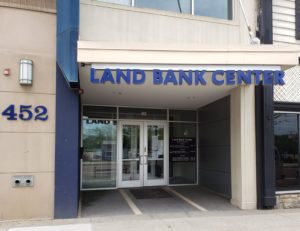
Front entrance to The Land Bank of Genesee County at 452 S. Saginaw in downtown Flint. (Photo by Tom Travis)
How the Land Bank began and how it works
As his website recounts, U.S. Congressman Dan Kildee, a Flint native, was the creator and developer of the Land Bank. “Before being elected to Congress, Dan created the Genesee County Land Bank, a first of its kind model that has redeveloped thousands of homes and buildings and brought over $100 million in economic development to our community. [Kildee also had been Genesee County Treasurer, possibly a key to his understanding of how the Land Bank would work and why it was needed].
As the website continues, Kildee “was the founder and CEO of a non-profit organization, the Center for Community Progress, which continues to support economic development projects across the country.”
The Land Bank was enabled in 2004 by state legislation to respond to a tax-foreclosure cycle in Genesee County. Michigan had a tax foreclosure process that hopelessly mired tax reverted properties in a legal limbo.
This contributed to urban decline in Flint by keeping properties off of the tax roll and out of circulation for up to seven years. With the new process, Michigan opened the door for communities to reclaim, reinvest in and rebuild their neighborhoods, according to the Land Bank website.
The Land Bank uses the amended tax law as a constructive community development tool: avoiding the potential neglect or misuse that comes from selling land at auction. The county is able to acquire abandoned land through the foreclosure process and determine the best use of that land.
The Land Bank assembles land for transfer to adjacent homeowners, develops long and short-term green spaces, and assembles land for new housing and commercial development. “When the Land Bank sells a property, we try to make the foreclosing unit whole again. We try to return to them as much of the actual revenue they lost,” Freeman said.
The Land Bank is separate and distinct from the County Treasurer’s office, he explained. While having governmental characteristics and accountability, it maintains “an arms’ length relationship with the county while maintaining itself as a separate entity.” The Land Bank is non-profit and governed by a board of directors — of which Genesee County Treasurer Deb Cherry is the chairperson.
The objective is to restore the integrity of the community by removing dilapidated structures and redeveloping abandoned properties, Freeman said.
How does a property get into the Land Bank?
Freeman explained the county is the foreclosing governmental unit. The county does foreclosure interventions with the property owners as well.
“We don’t want properties to go into foreclosure,” Freeman emphasized. “We want people to stay in them.”
Both the county and the Land Bank have staff dedicated to work with owners and tenants, he states, with the aim of keeping residents in their homes. There are intervention plans and the staff attempts to work out payment plans.
“But in the event that the property does go into tax foreclosure there is a fairly intricate process, including the right of first refusal by the local unit of government,” Freeman said.

A before picture of a Land Bank property on Eddy Street in Flint. (Photo provided by the Land Bank staff.)

An “after” photo of a Land Bank property on Eddy Street in Flint. (Photo provided by Land Bank staff.)
“There has to be a public purpose explained for why they’re pulling down the property. After that there are properties left and are bundled and then the Land Bank is the receiver of those properties,” he said.
“So at that point we go through acquiring title action because these titles are clouded titles. When the actual title is clean, then we look at what the disposition will be.”
“Potentially it could be, for example, a transfer where maybe there is a neighbor next door who would like a larger lot and they can acquire that property. Is it a redevelopment opportunity where additional housing can be put in?” Freeman said.
“We’ve had neighborhood gardens go in. Neighborhood associations adopt the property. We really try to find a new use for the property. Because at the end of the day we don’t want the properties back. We don’t want the properties to go back into foreclosure.”
A picture of a Land Bank property at 841 E. 9th Street before improvements were made. (Photo provided by Land Bank staff.)
A picture of a Land Bank property at 841 E. 9th Street after improvements were made. (Photo provided by Land Bank staff.)
We want these properties to contribute to the tax base of the city, which is a benefit to everybody. The more tax revenue we can help the localities generate, the better they’re going to be off, police, fire, streets,” Freeman said.
“That’s why I think the Land Bank is so critical for the economic welfare of the community, because we’re helping rebuild the tax base that quite honestly has been eroding for years,” Freeman emphasized.
“We’re taking the properties other people don’t want.”
“We’re taking the properties that other people don’t want. We become the caretakers for that property. The misconception is that we’re actively going out and trying to acquire as much property as we can,” Freeman said.
The Land Bank becomes caretakers of last resort
“We become the caretakers of last resort for a lot of these properties. And so that’s why mowing and maintenance is a big challenge,” Freeman said.
People sometimes get upset because they feel the properties are not getting mowed or maintained as much as needed, he acknowledged.
“But they wouldn’t be maintained as all if it wasn’t for us. So we can insure that at least there is some basic maintenance,” Freeman said.
Freeman points to what he believes is creative programming like the Clean & Green program as a path to effective property maintenance. Instead of hiring big lawn care and maintenance firms, the Land Bank partners with neighborhood associations who can apply for vacant lots mowing and maintenance. Then the Land Bank pays the neighbors for their work directly.
“I see much better results when you have neighborhood people taking care of the properties,” Freeman said. “Because they feel accountable, they don’t want people dumping on vacant lots where they’re mowing. “
“I live in a neighborhood that uses Clean & Green, Carriage Town,” Freeman noted. “The money that we make we spend on equipment used on the lots and use for flowers on corners. And the money is turned back into an investment for the properties. So it’s a win-win for everybody.”
Freeman added that in the Clean & Green program, two food gardens included, flower gardens, trees and pocket parks planted. The program also has boarded 90 vacant structures using decorative boards painted to mimic doors and windows.
Significant for Flint is the Land Bank’s claim that there are 30 percent fewer assaults and 40 percent fewer violent crimes overall in Clean and Green neighborhoods.
More than 1,700 residents paid to help maintain and mow Land Bank properties
“The maintenance and mowing program has operated every year of the Land Bank. We will continue to partner with neighborhoods for maintenance and mowing as much as our budget will allow,” Freeman said.
The Land Bank’s money for maintenance and mowing comes from residents’ who pay fines for their delinquent taxes. When people don’t pay their taxes on time and they are assessed a fee, that money goes towards the maintenance and mowing–supplying a yearly maintenance budget of $1.7 million.
“Cities with a robust population will do better”
Freeman recalled when he most recently worked for The City of Detroit, “At The City Detroit there was a new initiative for the city about being a welcoming city for immigrant populations.”
“There’s a significant Central American population and Middle Eastern population coming into Detroit. Included is the Bengali family from India who are all building neighborhoods and communities in Detroit.”
“We wanted to find out: how do you make neighborhoods more attractive so they can make business decisions and investments in recreational areas and housing to bolster populations?” Freeman said.
“Cities with a robust population will do better,” he asserted. “More tax base, more activity, less blight, less vacancy. So that’s one direction that we’d love to see if we can go with the City of Flint.”
“The Land Bank represents the entire county. And each community has its own development desires, and we have to make sure that in the out county we have as a robust approach to helping them deal with foreclosed properties.” Freeman said.
“Lack of information and outreach” factors in negative PR
“I think the negative PR is propagated by a lack of information and outreach. The Land Bank does a lot of amazing things that you don’t hear about. You only hear about negatives and the perception issues,” he said.
“So it’s about educating people. We are not actively trying to get your property we are not trying to build our inventory. We’re dealing with property that nobody wants that has gone into foreclosure. So we need to look at how we provide that information.”
One project in particular Freeman wished had had better public relations was the Durant Hotel.
He said many people thought the Land Bank was putting $28 million into the Durant–but they didn’t.
“In fact it was actually, investors and tax credits, that’s how we were able to get dollars to that particular project. What people don’t know is that it was part of what was called a cross collateralized TIF (tax increment financing) district.
Freeman explains, the city didn’t have enough money for demolition. So every blighted property that needed to be torn down we tied it to the Durant Hotel, understanding that demolition doesn’t create new tax revenue. There’s no new money created by doing demolition. It’s through the development.
So essentially by developing the Durant Hotel using the TIF money that was generated from the development of the Durant paid for all the demolitions in all the neighborhoods throughout the city of Flint. Those demolitions would never have happened.
“So that was smart, it was innovative. People looked at this across the country as an innovative way to generate revenue to support neighborhoods where there isn’t money.”
“But on the surface all people saw was – you’re putting $28 million into this project when you should have put that money into our neighborhoods. That money never could have gone into the neighborhoods. The investors weren’t looking to make that kind of investment they wanted to invest in the Durant.”
“But the Land Bank made that project pay for other things that to support the neighborhoods. The public knew half the story but that’s the other half that they didn’t know. “
Freeman said he understands that the Land Bank “has to be there to talk about what we’re doing and how we’re doing it. We have to be transparent, we have to be open. We have to help educate people.”
Freeman explained that he understands that some people may be unwilling to change their minds, but “We have to give them that opportunity.”
Freeman and Kildee friendship
Freeman worked for Kildee, the first director of the Land Bank, at the Center for Community Progress for several years before Kildee was elected to Congress, representing the Fifth District. Freeman said he provided technical assistance to land banks and land bank-like entities in Michigan and across the country.
The day Freeman was offered the Land Bank position, he said Kildee reached out to him and said, “We’re going to sit down and look at new ways the Land Bank can partner with the community to take advantage of philanthropic and federal resources and the role of the Land Bank.”
In a letter to the Land Bank celebrating its 10th anniversary in 2014 Kildee said, “The Land Bank’s story is about people who have seen the burned out house next door transformed into a green space; it’s about people who have watched new development occur in places long forgotten and considered beyond repair. And it’s about people who have seen the dream of home ownership materialize after thinking they would never know the security of owning the place where they live.”
Reflecting on what the future holds, Freeman said the Land Bank will be looking for new ideas and partnering for development to attract new people and create a new base.
“We want to work ourselves out of business some day,” Freeman concluded. “Some day we won’t need a Land Bank. But until that time it’s going to be through partnerships with the city and other developers to make sure that every neighborhood in the city is made whole, and that we work with them and as well with the county.”.
The former Land Bank director, Michele Wildman, has taken a position in Governor Whitmer’s cabinet as senior vice president of community development with the Michigan Economic Development Corporation (MEDC).
EVM Assistant Editor Tom Travis can be reached at tomntravis@gmail.com. EVM Editor Jan Worth-Nelson contributed to this story. She can be reached at janworth1118@gmail.com.


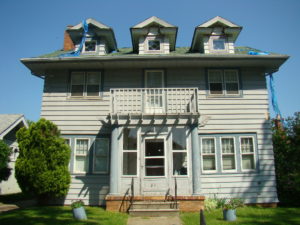
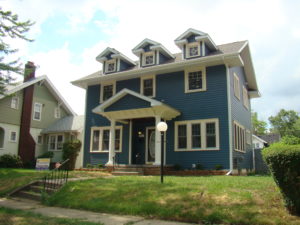
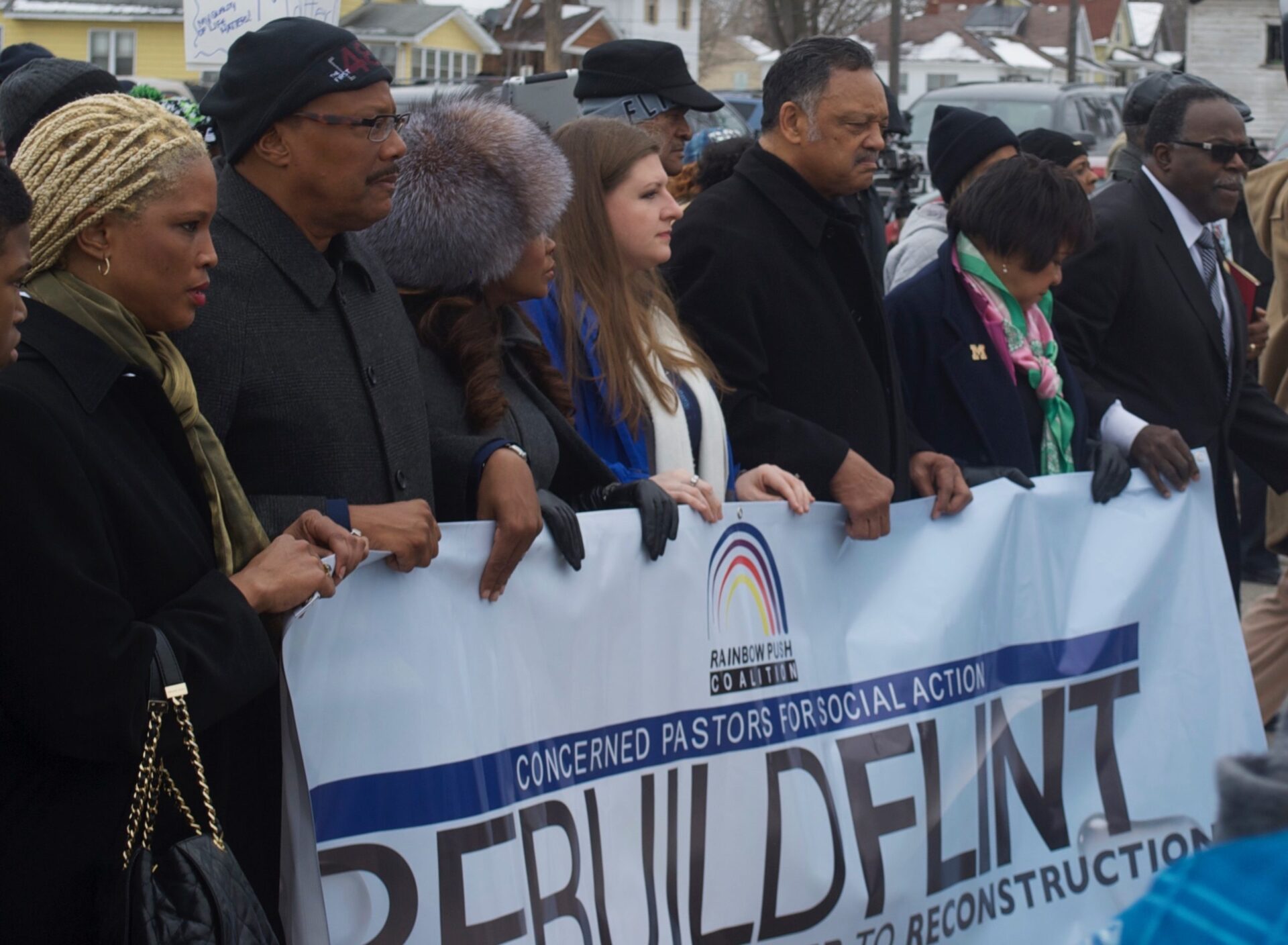


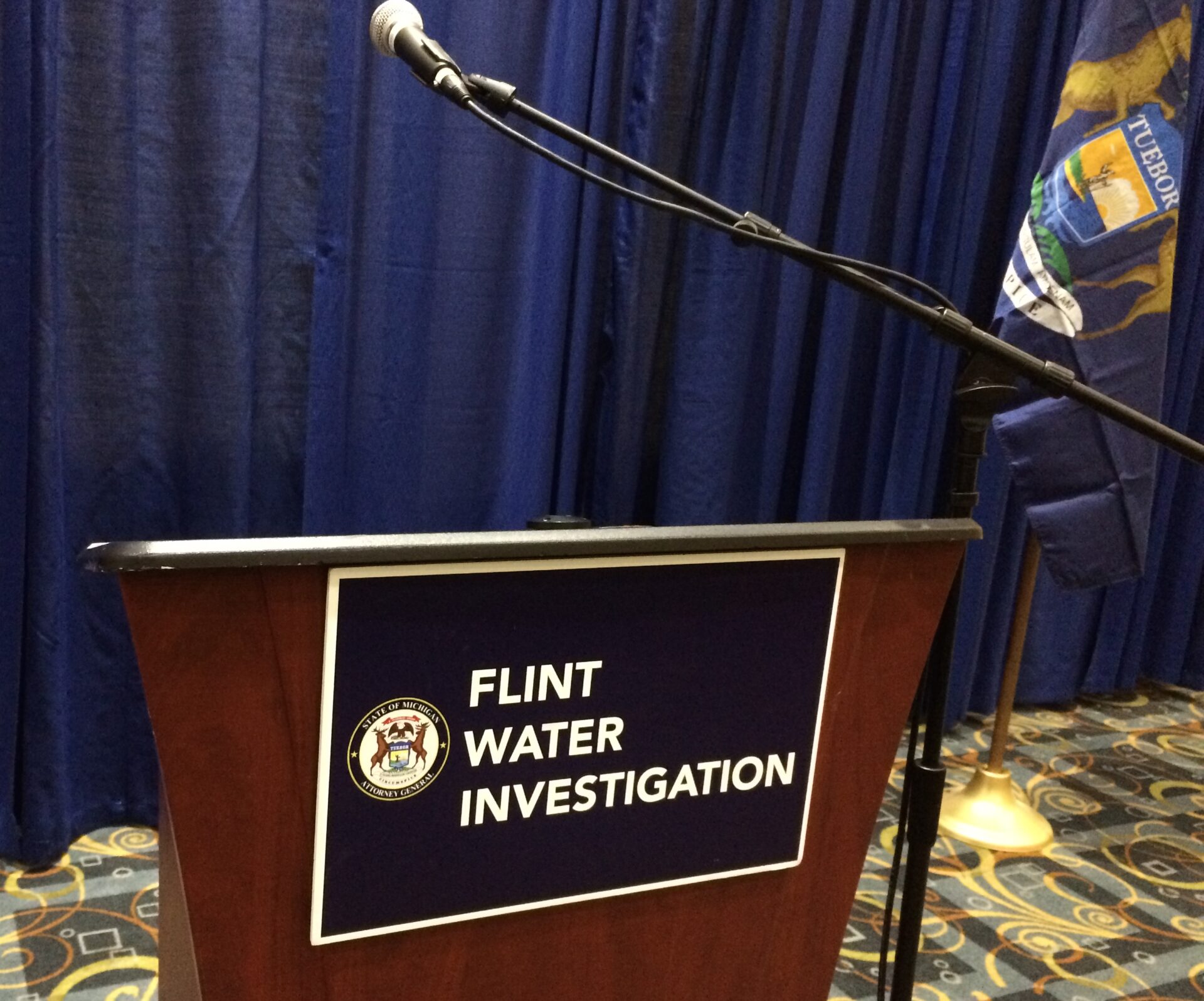
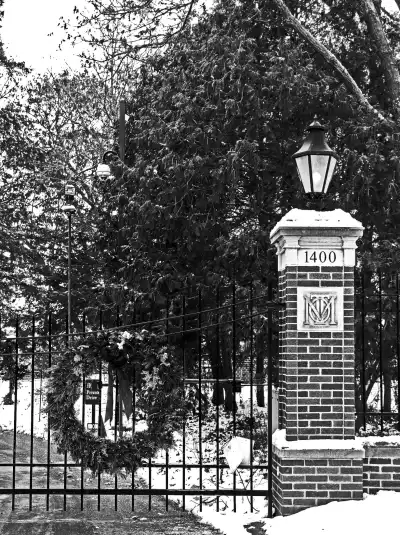

You must be logged in to post a comment.